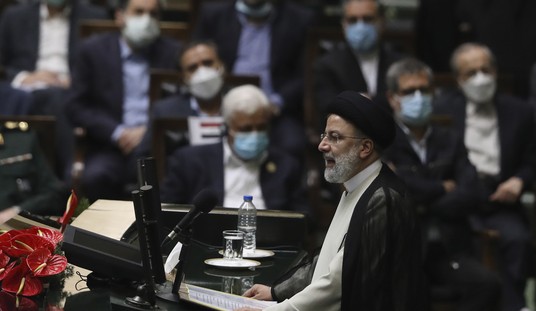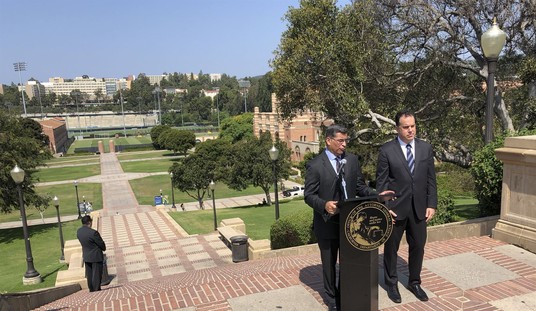If Ron DeSantis and Bob Iger were a movie, it would be the worst Odd Couple ever. Never mind that they share a compelling and deeply ingrained mutual interest: the good health — fiscal, functional, spiritual, and otherwise — of a gargantuan employer and taxpayer that remains the gold standard in Florida’s most important industry, luring visitors with favorable credit card balances.
For all their common ambitions, these two flatly refuse to get along. Iger, the Walt Disney Co.’s former and current boss, launched the latest jabs Monday during a Q&A at the annual shareholder meeting, “often reminiscent of a contentious school board meeting” according to the Los Angeles Times.
Responding to one shareholder’s question, Iger criticized [Florida Gov.] DeSantis for trying “to punish a company for its exercise of a constitutional right.”
“And that just seems really wrong to me, against any company or individual but particularly against the company that means so much to the state that you live in,” Iger added, calling the governor’s efforts “not just anti-business” but also “anti-Florida.”
More in a moment about Iger’s contention that the state’s response to the “exercise of a constitutional right … just seems really wrong to me.”
First to Iger’s charges, which are serious and important, if true. After all, as he gears up, presumably, to join the Republican race for the White House, DeSantis’ claim on the hearts of GOP primary voters is that he’d do everything he could as president to make all of America more like Florida. Is he, then, acting in ways designed to thwart his statewide launching pad?
The proof resides in Iger’s announcement that the Florida version of the House of the Mouse is in for a $17 b-b-b-b-b-billion upgrade over the next 10 years, creating 13,000 new direct jobs and countless thousands of ancillary positions. That doesn’t sound like the sort of investment a proper company would make in a hostile environment.
Now, about that response to Disney’s exercise of the First Amendment. This is where the spat began, after all, the one that led to DeSantis guiding the GOP-dominated Legislature to strip Disney World of its self-governing status through the Reedy Creek Improvement District.
To recap: Responding to pressure from Disney employees while legislators were contemplating the Parental Rights in Education Act — critics apply a misleading nickname — then-CEO Bob Chapek scolded lawmakers for targeting the LBGTQ+ community.
Even Iger, who succeeded his bumbling successor within months, concedes Chapek’s management of the moment was awkward, at best. Ever since, the governor of the third largest state and the CEO of a Dow Jones Industrials mainstay have been trading — to make family friendly a popular maxim — fool around and find out blows.
Seriously, though: Does Iger believe the First Amendment prevents repercussions for unpleasant or challenging speech? If that’s what he learned as an Ithaca College undergrad, he’s due a refund.
Chapek lashed out at a bill that (a) was being misrepresented by critics that (b) was especially important to a popular governor who’s boasted about going to war with woke culture. Ramifications weren’t inevitable, but neither should they have been unexpected.
So, Disney messed with DeSantis. And DeSantis messed with Disney. Legislators ended the company’s 55-year hegemony over 27,000 Central Florida acres, then gave the governor authority to appoint a five-member oversight board … which, it turns out, may have nothing much to do.
Among its final acts, RCID reps transferred much of the authority over future development decisions to Disney itself. Maintaining the roads is about all that’s left to the new board, which left DeSantis fuming.
In a letter to state chief inspector general Melinda Miguel, DeSantis says that the deal suffers “serious legal infirmities” and questions whether it’s valid under “Florida civil and criminal laws and ethics requirements.” He points to “inadequate notice” before the deal was struck, “improper delegation of authority” and “ethical violations, such as conflicts of interest and self-dealing.”
What’s worrisome here for those deeply invested in DeSantis’ future is that his administration appears to have been caught flat-footed. The new board members expressed surprise at Disney’s maneuver, discovered only when they requested documents from RCID’s cleanup crew. By then, the cattle were out of the corral.
Disney thinks the land-development project approved at the public meeting was in compliance with state law, according to people familiar with the company’s thinking. The substance of the meeting—including a description of the plan that was voted on—was advertised twice in print articles published in the Orlando Sentinel newspaper in January, as required by law. …
“Disney didn’t do anything secret. They publicized it, they advertised it,” [said Juan-Carlos Planas, a former Republican legislator in Florida who has taught law school courses about Reedy Creek’s legal structure.] “If you’re in Tallahassee, and you’re replacing the board, how do you not know what that board is doing in their public meeting? This was negligence on the part of the governor’s office and Republican legislators.”
This is not a good look for someone who, in a month or so, is assumed will begin making arguments for why he should be trusted with the defense of the United States, which includes negotiating with allies and keeping granular track of rivals and enemies.
For the first time since Ron DeSantis commenced giving the impression he’s ready to take on leadership of the free world, his fan base has reasons to worry.







